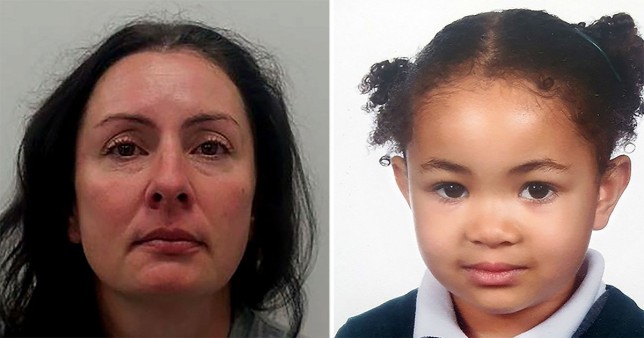Sad Story Of 5-Year-Old Girl Who Was Strangled To Death By Her Own Mother Despite Begging For Her Life
Posted by Samuel on Sat 29th Jan, 2022 - tori.ng 
Martina Madarova, a 41-year-old mother has been jailed for five years after she admitted killing her five-year-old daughter at the family home.
The woman put on cartoons and then strangled Alijah Thomas in Ealing, west London, last September after becoming severely depressed during the pandemic.
After she phoned the girl’s father to say she had died, Madarova was found lying on the sofa with her daughter tucked under a blanket as if to go to sleep.
She went on to tell medics that she felt she had ‘failed’ her daughter and had consumed two bottles of wine.
Her daughter had begged her ‘Mummy, don’t kill me’, she told paramedics, and she said she responded ‘I don’t want to kill you, I just want to help you, no baby you’re safe’.
She said Alijah had replied ‘No mummy, you’re killing me’.
A post-mortem examination found Alijah died from compression of the neck.
Her mother said her plan had been to kill her daughter and then commit suicide herself.
While in police custody, she was described as ‘distressed’ and when questioned if she heard voices in her head, she replied: ‘What I have done is not normal, I’m going to be all over the news, the voices in my head told me to do it now – I deserve the death sentence.
‘It’s rare when a mother suffocates her own child, I’m a murderer at the end of the day.’
When asked by a psychiatrist for her version of events, she said: ‘I know I took Ali from the bedroom to the living room. I put cartoons on for her. She was finding me crying. I was with her for a while.
‘It was very embarrassing, my daughter trying to help me. That’s when I felt like a failure. Emotional, physical and spiritual mess. Nothing was right.’
She was charged with her daughter’s murder and in a hearing on December 7, she pleaded guilty to manslaughter by reason of diminished responsibility.
Alijah’s father David Thomas said in an impact statement read to the court: ‘I don’t think I’ll ever get over losing her in this way.
‘She was a bright child. We would take the Tube together and I’ll miss those little adventures together, she would ask questions and we would talk about the world.
‘I was so proud of her – she would have been an athlete, she had speed. I will miss everything about her, watching her sleep, her giving me a hug before bed, patting her hair, brushing her hair.’
Speaking of Madarova, he said his family held ‘no malice’ towards her, and said that she was the ‘best mum’ who would never have intentionally hurt their daughter unless for her mental health.
He said: ‘She is the most innocent person you could meet. She sees the good in everyone and everything. I am very shocked by what has happened as this is just not her.
‘Martina would do anything for me or Alijah. She did not like violence and would not allow Alijah to watch cartoons which had an element of violence in them.’
Describing his own mother as his ‘rock’, he said: ‘She’s not only upset at losing Alijah but by the fact that Martina is sitting in prison.
‘She does not have a bad word to say against her, she finds it hard to sleep for thinking about Martina.’
Prosecutor Duncan Atkinson QC said she had suffered a ‘significant deterioration’ in her mental health since the pandemic began and was severely depressed when she killed Alijah.
The court heard she was concerned for her income, after her hours as a carer had been reduced, and had become anxious after missing the deadline to enrol Alijah at school.
Along with concerns about her mother contracting Covid-19, and being stuck in the flat all day, she had eventually begun to turn to alcohol as a ‘coping mechanism’.
Appearing today at the Old Bailey, the 41-year-old Slovakian national was sentenced to five years imprisonment.
Judge Richard Marks QC ruled that she had ‘low responsibility’ over Alijah’s death.
He noted that prior to the incident, Madarova had been an ‘exemplary mother’ and that there was no evidence of her mistreating Alijah at any point before the incident.
However, he did tell the defendant that she had ignored multiple warnings from friends and family to seek medical advice and had failed to do so, turning to alcohol instead.
He acknowledged her ‘genuine remorse’, and told her: ‘You have to live with what you did for the rest of your life.’













































